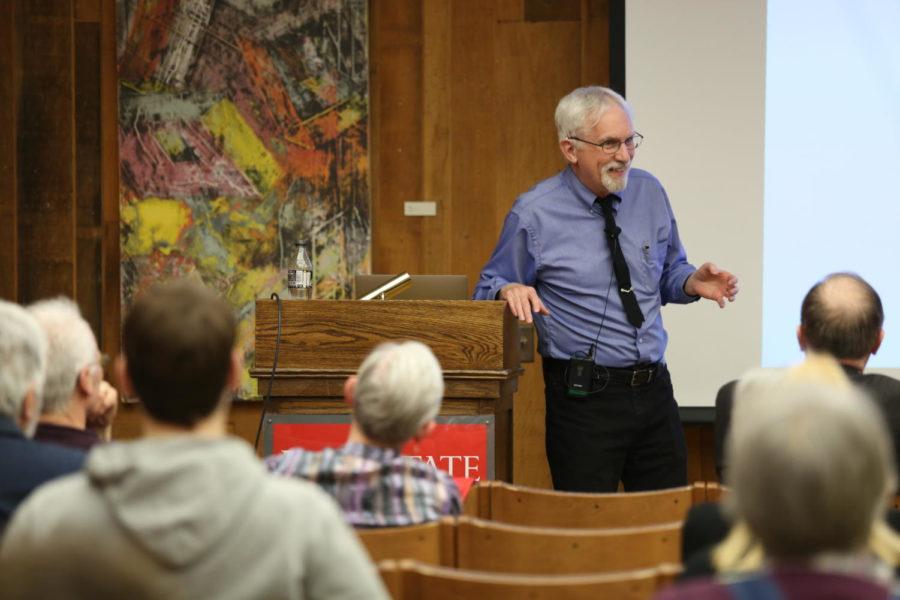Professor speaks on global warming and violence
Danielle Peterson/Iowa State Daily
Craig Anderson, a Iowa State Distinguished Professor of psychology, discussed the implications for action on climate change and on preparing for the challenges of eco-migration. The lecture was held in the Pioneer room Thursday, March 14 in the Memorial Union.
March 14, 2019
Craig Anderson, professor of psychology spoke at the MU Thursday on ways in which the rise of global warming has led to an increased risk of human violence.
Anderson outlined 3 main global warming paths that lead to violence and those include direct causes, and two indirect causes which are violence prone adults, and intergroup conflict.
“First of all this should not be seen as a liberal versus conservative issue, yet it is primarily because of the turn of the republican party has taken over the last couple of decades, but it really shouldn’t be,” Anderson said.
Anderson first talked about the CNA Military Advisory Board that was created in order to examine the impact of climate change on the military and said that the report from 2007 pointed out an increase in refugees, political instability and small scare wars.
Anderson explained how the direct effects of heat has actually been shown to cause irritability, which leads to an increase in aggressive behavior. He highlighted this by explaining an experiment in which participants in a hot room were more likely to experience aggression.
As for the indirect paths in how global warming leads to violence, Anderson explained how malnutrition in the first couple trimester of pregnancy has been shown to create violence prone adults.
Intergroup conflict is a second indirect path that leads to violence and Anderson said that global warming will and has lead to civil political unrest, refugees and internally displaced persons, mentioning how it relates to what the current situation in Syria.
“Bottom line is it’s almost always going to be based on resource competition,” said Anderson.
Anderson said the solution to counteracting global warming starts at an individual level with small steps such as refusing to buy bottled water and to change the attitude towards to clean energy revolution as an opportunity not a threat.
“This is an opportunity to build new industries and create decent paying jobs,” said Anderson.
Some other ways Anderson mentioned to combat this issue are to implement policies that dramatically cut greenhouse gas production and cut the demand for energy.
“We should treat immigrants and internally displaced persons not as a liability, but as an asset and there are great economic reasons for doing that,” said Anderson.
Anderson continued to explain how history has shown that when immigrants and refugees were treated with respect upon arrival there have been positive economic impacts.
This lecture is co sponsored by Sigma Xi and Committee on lectures funded by student government.







